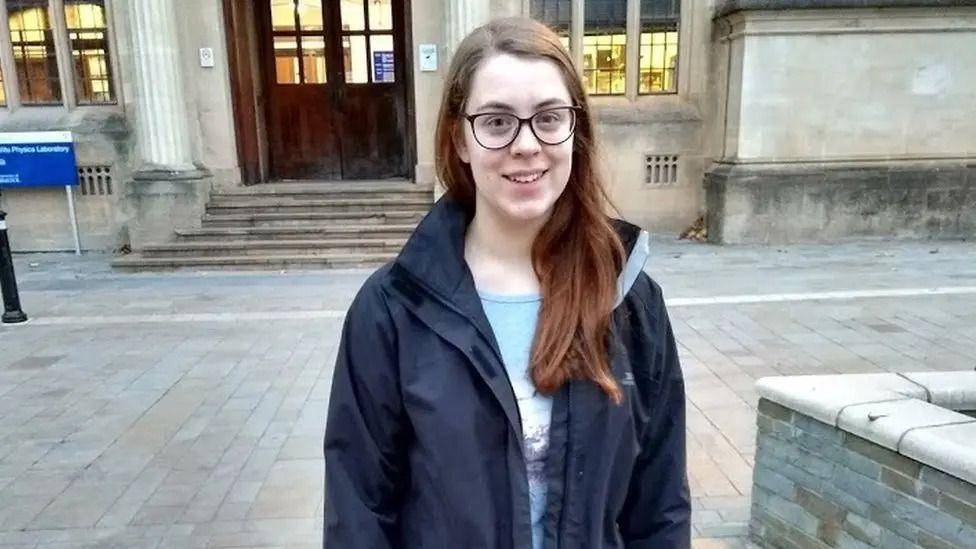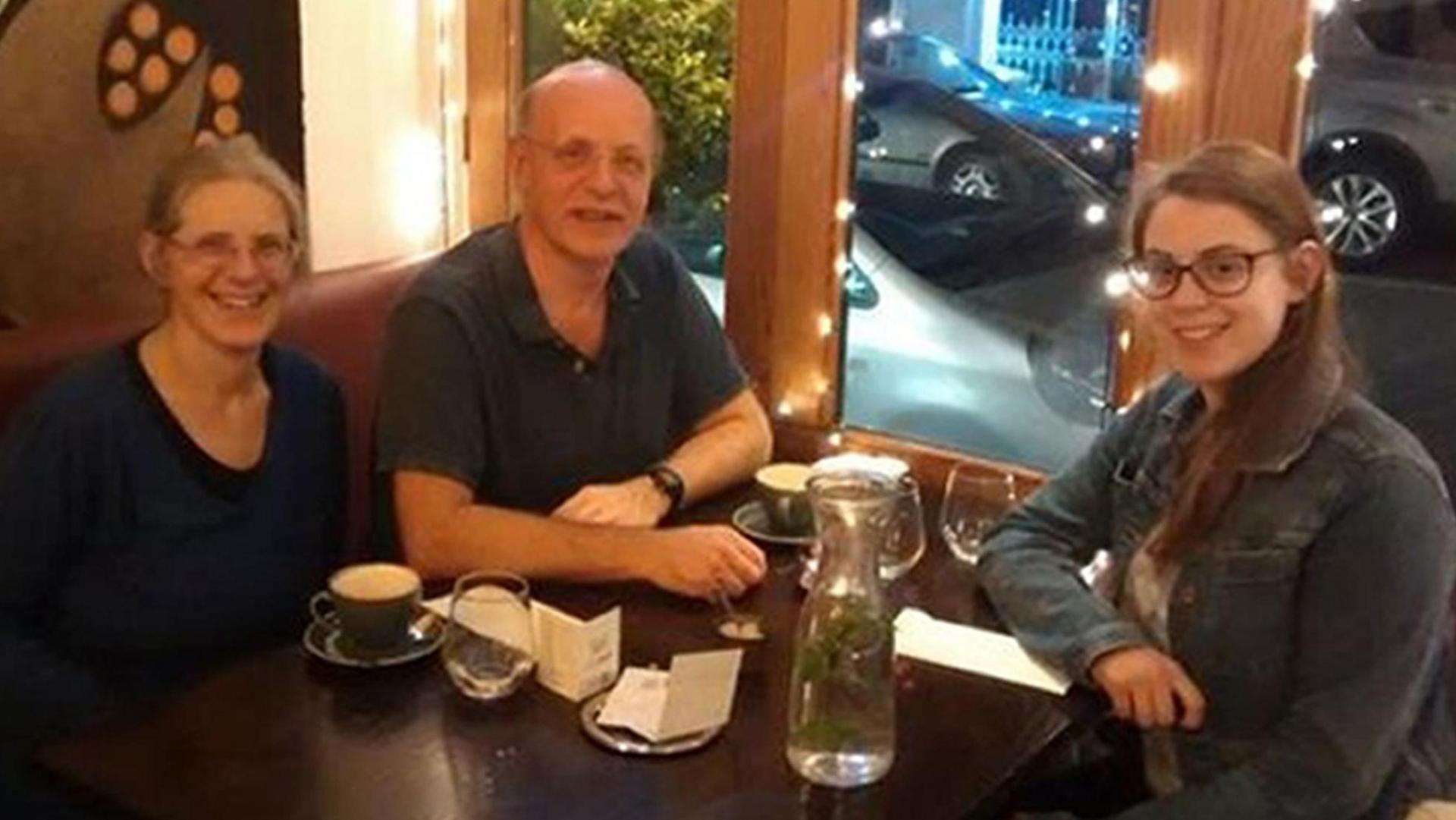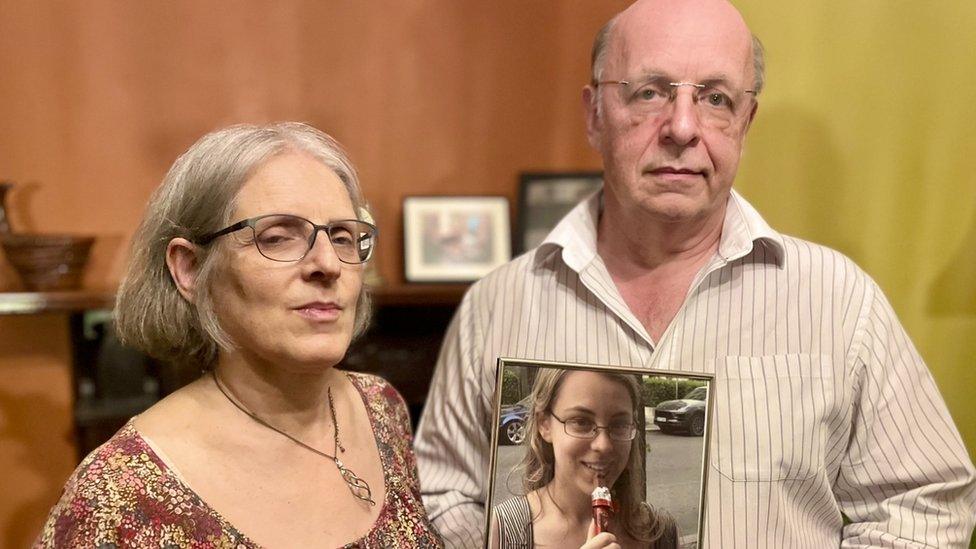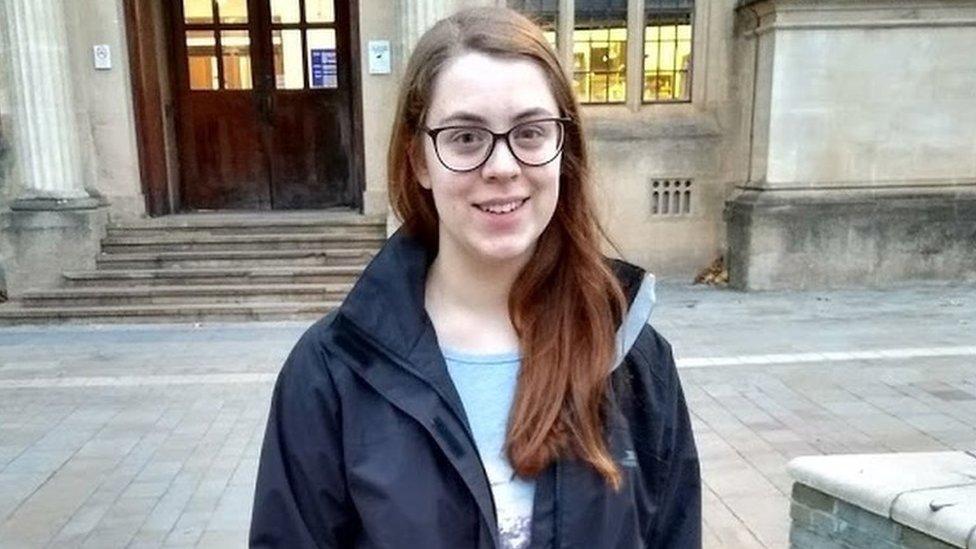Anxious student's parents welcome new uni guidance

Natasha was found dead shortly before a presentation in front of more than 40 students in a lecture theatre
- Published
The parents of a student with chronic anxiety who killed herself ahead of a university presentation have welcomed new guidance for disabled students.
University of Bristol student Natasha Abrahart was found dead in her flat in April 2018.
The Equality and Human Rights Commission (EHRC) has published new guidance - contributed to by Ms Abrahart's family, from Nottinghamshire - setting out what universities must do to comply with laws on disability.
Chairwoman Baroness Kishwer Falkner said they must proactively support disabled students instead of waiting on them to come forward and ask for help.
Ms Abrahart's parents, Dr Robert and Margaret Abrahart, said: "Universities often misunderstand reasonable adjustments, treating students as if they're trying to exploit the system rather than addressing their genuine needs.
"This ignorance and resistance to change can have serious consequences, such as the tragic loss of our daughter."
Ms Abrahart was in her second year of university when, according to family, "things started to go wrong" as she was required to complete oral assessments as part of her course.

Ms Abrahart's parents, Margaret and Robert, said universities must commit to helping disabled students
Mr Abrahart brought legal action against the university alleging it had contributed to his daughter's death by discriminating against her on the grounds of disability.
A judge at Bristol Crown Court in 2022 ruled the university had breached its duties under the Equality Act by failing to make "reasonable adjustments" for Ms Abrahart and her anxiety, which is considered a disability.
The University of Bristol appealed this verdict in December last year, and in February, the High Court upheld the original judgement that the University of Bristol had failed to make reasonable adjustments for Ms Abrahart.
'Real commitment'
Ms Falkner thanked the Abrahart family for contributing to the new guidance, which has been sent to every university in the country.
"The advice is clear that waiting for a student to come forward and ask for reasonable adjustments is not enough," she said.
Mr and Mrs Abrahart said: "The sector has repeatedly ignored the core principles of the Equality Act and, even now, is only aiming to meet the barest minimum required by law - mainly to avoid liability rather than to do what is right.
"True leadership means going beyond just following the rules.
"It involves actively seeking out and adopting best practices and showing a real commitment to understanding and meeting the diverse needs of all students.
"It's essential that institutions address these concerns, overcome outdated attitudes, and implement reasonable adjustments effectively and promptly to support all students and prevent further discrimination," they added.
Follow BBC Bristol on Facebook, external, X, external and Instagram, external. Send your story ideas to us on email or via WhatsApp on 0800 313 4630.
Get in touch
Tell us which stories we should cover in Bristol
- Published14 February 2024

- Published20 May 2022

- Published19 May 2022
